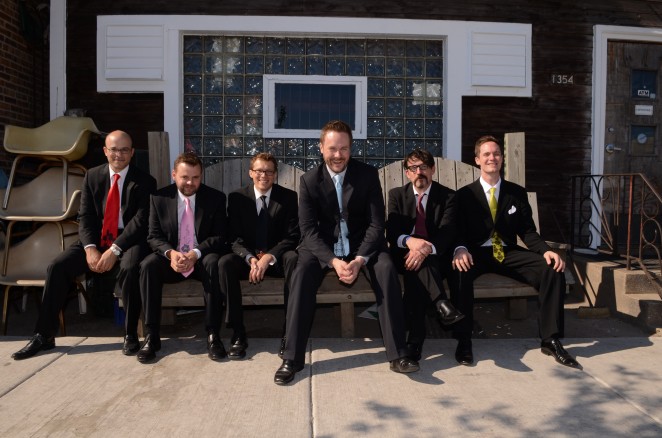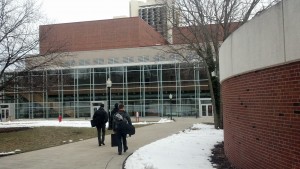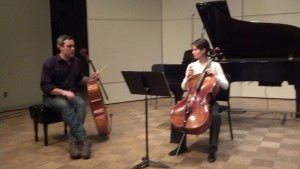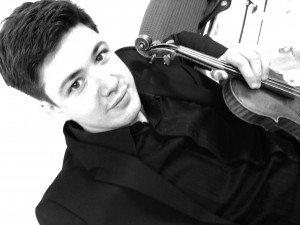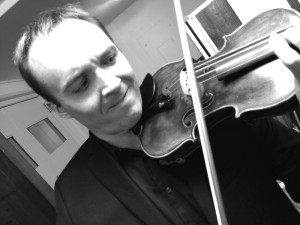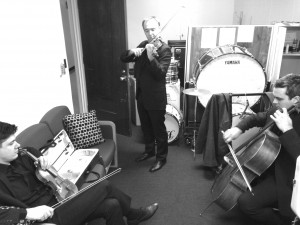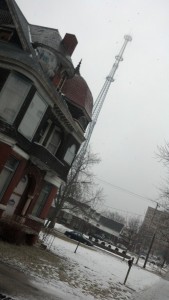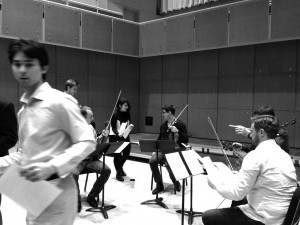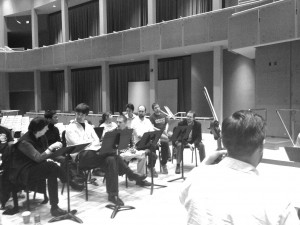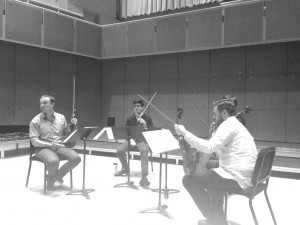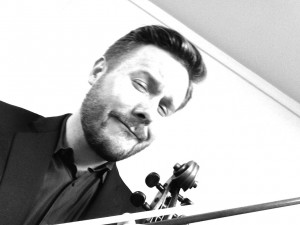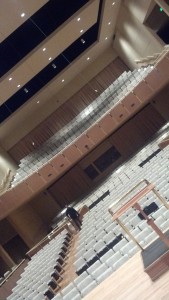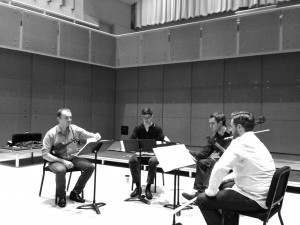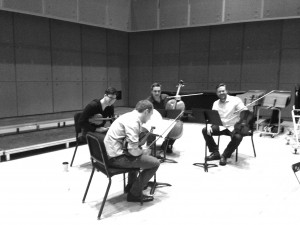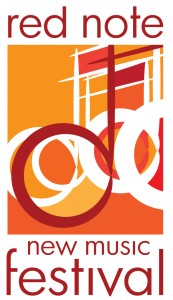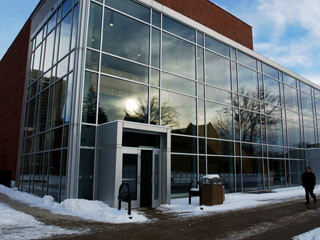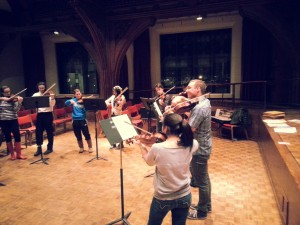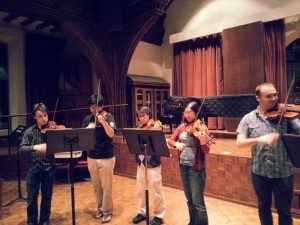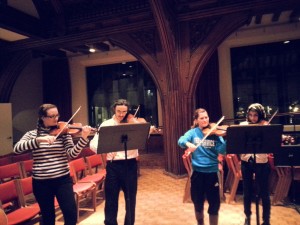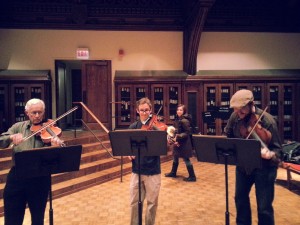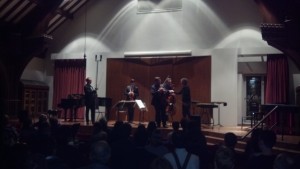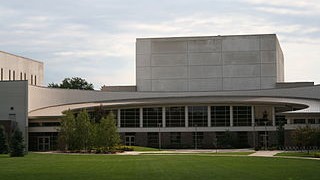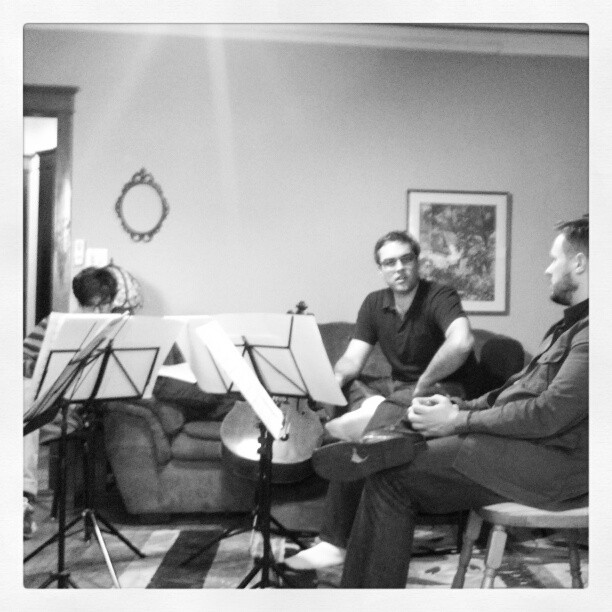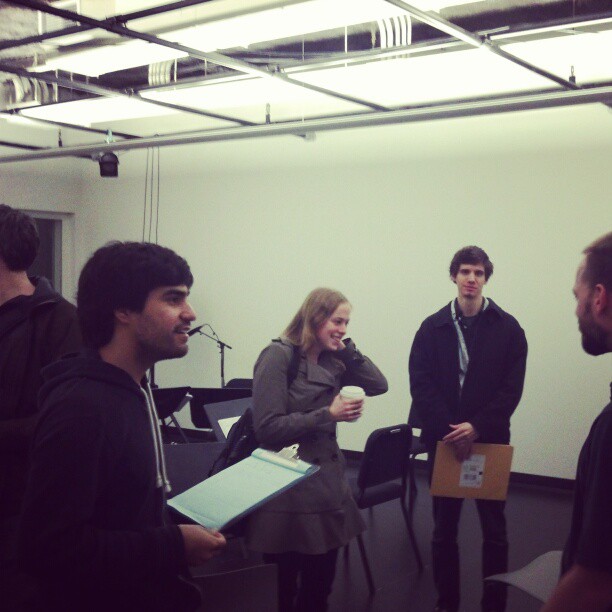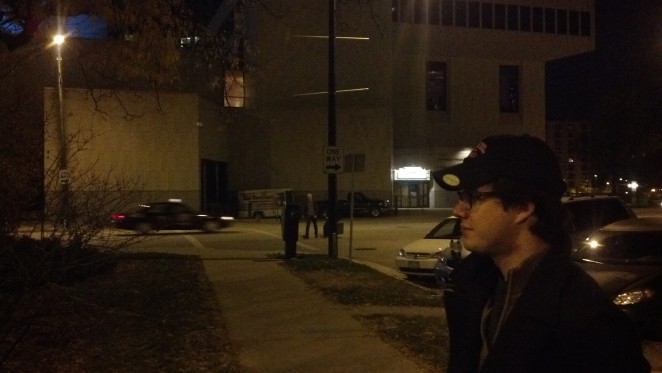When friends would inquire about the preparations for our final Chicago show – No Regrets (June 12th, 2022) – the most frequent comparison was to that of planning a wedding. There are the surface-level similarities, like debating over caterers, rolling the dice on a photographer, and the Tetris of deciding on speeches. Maybe the most profound parallel, though, is the feverish desire that the event match the occasion. There are no do-overs on a “final” anything.
INSTRUMENT UPGRADE ALERT! Grancino, Serafin, Goffriller, and Guarneri...
Pinch us…we must be dreaming.
One of our newest board members, Joe Bein, has opened up the instrument vault at Bein & Fushi, and let us select four very fine, old Italian instruments for our upcoming concert on February 17th. For those of you who don’t know, Bein & Fushi is one of the premiere purveyors of rare violins, violas, and cellos in the world, and the shop has brokered many of the most significant instrument sales…ever.
The Grand Finale to our 2017/18 Season!
Fireworks will be arriving early this summer...
This Sunday (5/20) marks the grand finale of our season with the final event of our Schoenberg cycle: In Search of Futures Past! We want to send you into the summer months in style, so here's what we have in store for you:
Clarion Call: World Premiere by Augusta Read Thomas
This Sunday, our concert at Constellation will begin with the resonance of a harp. Not a usual occurrence for one of our Sampler Packs, but we're all the happier that the incredibly talented and gracious Ben Melsky was willing to step in and join Russ as a part of our effort to make good out of a bad situation. Even better still, those resonating tones are the initials of Mary Louise Gorno transformed into music for cello and harp by the infinitely skillful and energetic Augusta Read Thomas.
This performance will mark public premiere of "Clarion". Just weeks ago, it was dedicated to Gorno at a private celebration in the home of University of Chicago president Robert Zimmer. It's a true testament to the importance of the arts at U of C (to which we can attest by our weekly visits to Hyde Park) that this work was commissioned by and performed in the president's home. In fact, much of the history of music is music written in just such a way: to celebrate weddings, coronations, beloved colleagues…the list goes on and on. Augusta says, regarding the traits of this work inspired by Gorno "This short work is very soulful, and graceful, like her."
At just three minutes, it is a poetic feat that Augusta has captured so many sides of this prismatic character in such a short span of time. Her collaborative spirit as a composer, and sensitivity to what performers can achieve and capture live, allows her such striking stylistic virtuosity. Rehearsals and composition classes with her are imbued with the bubbling energies of her music and the more we've worked with her (whether at the University or on our Ringtones project), the more her passion for exploring musical characters has inspired us.
You can hear the public premiere of "Clarion" in all its brilliantly clear lyricism and elegant optimism this Sunday on the Frequency Series.
Stylistic Maneuvers
I've never been the kind of musician (or music fan) who feels the need to be exclusive in my tastes. While it may surprise some of you who are more familiar with me writing about Haas or Carter, I'm just as likely to listen to Ke$ha or Chick Corea's "My Spanish Heart" without the slightest tinge of irony.
If I spend too long playing strictly concert hall music, I get a bit itchy. I'm certainly listening to other stuff, like my recent obsession from an amazing super-group.
That's why the the beginnings of our collaboration with Julien Labro for an album on Azica Records have brought me musical energy just when I thought I was burnt out from a long concert season.
First of all, Julien sent us a new arrangement of this scorcher a few months back to start work on:
Given the mixed meters and quicksilver solo lines, it's a good thing we've had some time to absorb the tune.
I'll be honest, I'd never heard of any of the artists on this track before Julien sent it our way. And, it's more of the same with a few other composers and tunes on the record. That includes the thorny hubbub of Fernando Otero's "De Ahora en Màs" and a couple tunes by the incredibly talented Diego Schissi, whose adventures in nuevo tango have a flavor of Stravinsky.
It's not like I've never listened to Latin jazz before, but diving into the styles and listening with actually playing these different moods and grooves in mind has been an adventure in uncovering some really special musical personalities.
Our first shows with the new material are on Tuesday at the Clark Street location of Uncommon Ground and on the Pittsburgh Chamber Music Society the following day. Look for more shows this fall, and the album later in the concert season!
But, it's not our first time playing together and we'll be bringing back some familiar arrangements from familiar names:
Old Man and the C: Live at the Hide-opolis
Remember our end-of-the-year party at High Concept Labs last June? What you probably didn't know is that the power went out on half of Wabansia Ave just hours before you showed up. Across the street, the folks at the Hideout were scrambling to figure out what to do with the sizable crowds queueing up for its Just For Laughs Festival (and acts like W Kamau Bell, Pete Holmes and Brody Stevens) that very same evening. The Hideout pleaded with us to use the downstairs space at HCL and I immediately envisioned the Andante movement of Beethoven's Op. 59 No. 3 with Reggie Watts's dulcet ballad, F**k S**t Stack, wafting up through the floorboards. Short story long, we offered to help them out (don't worry, the power came back on prior to show time) and Hideout owner Tim Tuten offered us a slot in his 2013 season lineup…which we are cashing in on this Saturday.
Personally, I couldn't be more excited to play this joint. The Hideout is intimate, the stage is low and inviting, the crowd open-eared and the drinks silly cheap. If there is any question how much I love this venue, might I direct you to one of the photo locations from my wedding in 2011:
This house-shaped club isn't really a secret in Chicago, but sitting as it does in the middle of a public works campus, fans have made an effort to be there, and the riff raff is minimal or non-existent. It's played host to some outstanding talent, such as:
(get ready for some QUALITY audio, folks…)
Glen Hansard
Jeff Tweedy
Shellac
CAVE
The Fiery Furnaces
Jay Reatard
Alabama Shakes
Spektral can't wait to get the sounds of Alex Temple, Steve Gorbos, Ben Hjertmann, Liza White, Francisco Castillo Trigueros, Haydn, Mozart, Beethoven and Verdi inside these hallowed walls. Make sure you come up and say hi after the show…or during the show for that matter. See you on Saturday!
Jacob Bancks: Approaching the Quartet
This Friday, Spektral takes to the road for a day of masterclass and performance at Augustana College in Rock Island, IL. We're very much looking forward to premiering a new work by Jacob Bancks, entitled Canticle, who I've known for several years since he was a student at the University of Chicago and I played Messiaen's Quartet for the End of Time with his wife Kara, an excellent clarinetist. Here are some thoughts from him about his personal approach to composition and the string quartet genre.
JAW: In approaching a new work for string quartet, do you find the tradition of the repertoire inspiring or encumbering? What are your favorite quartets and did you draw any inspiration from them for this work?
JB: A lot of composers talk about being weighted down by Mozart, Shostakovich, whomever, when writing string quartets. Honestly, I never let old, famous works in any genre get in my way; that would be like my three-year-old daughter getting her crayons jumbled by the specter of Picasso. And plenty of people can't tell the difference between the two anyway. There are however a few canonical string quartets that I'm constantly engaging, in this project and elsewhere. As a nerdy undergrad I went up to Performers' Music on Michigan Ave. and devoutly bought that red faux-leather volume of the complete Bartók quartets like it was the Book of Common Prayer. Every couple of years I go back to those, and my mind is newly-blown; they're like six new works each time I hear them. Of late I've also become an unwitting fan of Joseph Haydn's quartets. I tell my theory students, Haydn's like your dad: you think he's boring now, but the older you get, the more grotesquely fascinating he will become. And I always go back to Beethoven, especially Op. 130 (B-flat Major) which is personally very sentimental to me, and Op. 131 (C-sharp Minor), which I find both exhilarating and baffling. But my real string quartet fetishes of late, which might be obvious from the new work for Spektral, have been Ravel and Debussy. They each wrote only one quartet: why mess with perfection?
JAW: How did you approach putting pen to paper for this work? Did you begin with an idea of the piece as a whole or smaller moments?
JB: In this particular piece, I started with several musical images that I attempted to shape into a cohesive whole. The centerpiece of the work is this temperamental, bold, coarse cello solo, which has the other instruments responding in various stages of confusion and amazement. The rest of the piece centers on two basic ideas, both of which are transformed through the lens of the cello solo: excruciatingly slow, solemn polyphony; and uncontrollable, quietly nervous flickering.
JAW: How has life as a composer changed with your new role as a faculty member, compared to your past life as a composition student at University of Chicago?
JB: I loved UChicago, so leaving was hard. I was actually teaching for two terms before I came back to defend my dissertation, which was when it struck me that I had spent the last six years around some of the most brilliant musical minds on earth. But Augustana has been an ideal gig for so many reasons: I have excellent colleagues, I enjoy my students, my class sizes are small, and I have been able to build a composition program essentially from scratch. And I can swim to Iowa any time I want. Teaching has, without question, made me a better composer. For one, I nag my students enough about their productivity that I've started expecting more out of myself as well. And I love teaching undergraduates from all kinds of backgrounds: there's nothing like playing Firebird for someone who's never heard it before, or helping a student progress from barely reading notes to beginning to digest works of Berio and Feldman within a couple of years. More than anything, teaching keeps me constantly working toward expressing only the most worthwhile ideas with clarity, passion, and coherence, which is exactly what I hope for in my music as well.
Being Weird in Normal
As we exited the Chicago suburbs, and the corporate jungle evaporated, I found myself excited by all the shockingly open space in Illinois. We were on our way to Bloomington/Normal for an appearance on the Red Note Music Festival at Illinois State University. During our time there, the students were highly receptive and energetic at our master class and composer readings, not to mention the engaged and interested audience for our evening concert of works by Carter, Balter, Fisher-Lochhead, Dehaan and Thomalla.
Sometimes you're acutely aware you're arriving somewhere much different than home:
Our Monday arrival at ISU and Russ in action coaching Ligeti's solo sonata:
Backstage before Monday evening's concert, things sometimes get a bit punchy:
A view of downtown Bloomington from my Tuesday morning run:
Tuesday afternoon's composer readings included feedback from the venerable Joan Tower in the lovely concert hall at ISU.
Winter storms could not stop us from a swift return to the windy city:
Being Weird in Normal
As we exited the Chicago suburbs, and the corporate jungle evaporated, I found myself excited by all the shockingly open space in Illinois. We were on our way to Bloomington/Normal for an appearance on the Red Note Music Festival at Illinois State University. During our time there, the students were highly receptive and energetic at our master class and composer readings, not to mention the engaged and interested audience for our evening concert of works by Carter, Balter, Fisher-Lochhead, Dehaan and Thomalla.
Sometimes you're acutely aware you're arriving somewhere much different than home:
Our Monday arrival at ISU and Russ in action coaching Ligeti's solo sonata:
Backstage before Monday evening's concert, things sometimes get a bit punchy:
A view of downtown Bloomington from my Tuesday morning run:
Tuesday afternoon's composer readings included feedback from the venerable Joan Tower in the lovely concert hall at ISU.
Winter storms could not stop us from a swift return to the windy city:
Red Note Festival
This March finds us taking a slice of Chicago down-state to Illinois State University's Red Note Festival for new music. We'll bring some of our favorite Windy City composers to Bloomington, including Chris Fisher-Lochhead, Hans Thomalla, Daniel Dehaan and Marcos Balter. We'll cap off the concert with a performance of a piece that's quickly working its way into our favorite repertoire: Elliott Carter's String Quartet No. 2, a work of astonishing breadth of expression and compositional command.
The festival features a full week of performances and a bevy of performing artists, including featured guest composer Joan Tower. We'll be at ISU for two days, with a range of activities including master classes for string students and readings of new works by student composers. We're looking forward to more than just bringing our repertoire to this new place, but discovering the culture around newly composed music at ISU and hearing the new sounds their students are dreaming up.
Illinois State University's Performing Arts Center.
A Winter Week at U of C
Our week at University of Chicago started with a fantastically fun chamber music reading party with some of the chamber music students in the Music Department. Music by Bach, Mendelssohn and Handel was followed by pizza. (Click the pics for enlarged versions.)
And, the week ended with an epic quartet-fest: three great new works by U of C Graduate students, and our dear friend Albumblatt, by Hans Thomalla.
Minty Fresh Quartets
A primo benefit to being a quartet that plays loads of new music is that we get first-looks at minty fresh scores. Our UChicago New Music Ensemble concert this Saturday is exactly that, and we are all impressed by the imagination and polish of the music featured by their talented composition students.
Phil Taylor's Spandrels is alternate doses of tranquility and eruption, draped across an architecture that keeps the listener satisfyingly rooted in the present. Jae-Goo Lee's Cold and Sharp pulls the camera in tight, examining a shivering and delicate world through microscopic-seeming string techniques. Andrew McManus has proven himself to be a major talent at writing for strings, and his The Sacred and the Profane moves through shades of prismatic harmonics, jazz-like jaunts and vital rhythmic counterpoint before disappearing altogether.
Esteemed Northwestern University faculty composer Hans Thomalla's Albumblatt has quickly become a cornerstone of our repertoire, and we are thrilled to be bringing this perspective-warping piece to Hyde Park to round out the program. Imagine glissandi originating from separate corners within the quartet, converging at microtonally-constructed major chords for just an instant. It makes us throw our hands up and shout, "It's SO GOOD!" every time we rehearse it.
Saturday, Feb. 16 at 8 PM. FREE!
University of Chicago - Fulton Recital Hall (map)
1010 E. 59th Street, Goodspeed Hall, 4th floor
Austin wrote about Hans' piece previously on the blog, and you can see us playing it live at Northwestern University here:
Return to the land of Goshen
This Friday at 7:30 marks the fourth concert we've given in Goshen, Indiana in this quartet's short life. This is no coincidence, as I was born and raised in Goshen and my parents still live there as an active part of the Mennonite community surrounding Goshen College. We've already played Haydn's "Seven Last Words" in the College Church, as well as music by Brahms, Ades and more in the acoustically wonderful Reith Recital Hall in Goshen College's Music Center. You can take a trip back in time to last year's trip in a blog post about our snowy drive, or read about this year's concert on their website.
Goshen College Music Center
We return with a program of music by vocally inspired composers: Verdi, Mozart, Wolf and James Blake (as re-imagined by Chris Fisher-Lochhead). All these composers have an amazing imagination for musical characters: sneaky villains, beautiful heroines and comic fools will all show their face as the musical drama unfolds.
For a little taste of what you'll see at the show, you can see us in a very intimate live performance at Comfort Music this summer:
Old Man and the C-arter
This week, Spektral gives its first-ever performance of Elliott Carter's String Quartet No. 2 at the National Pastime Theater. I've now had two separate incidents of someone asking me if we decided to play this monumental work after learning of Carter's death. I only wish I traveled with the score, so as to quickly (and passive-aggressively) answer their query. Unpacking this piece, with all it's hocket-ed composite rhythms and wickedly-challenging passagework, has been an experience equally frustrating and gratifying for us. This is Carter, though. That's what HE DOES.
The title of the show is a quote from the man himself, that reads: "An auditory scenario for the players to act out with their instruments." It is not specifically tied to Quartet No. 2, but it closely parallels the individuality of each part, or character, around which Carter wrote this score. Aurelien's imaginative synopsis of the "plot" will be included in the program, and each of us will offer descriptions from the stage of who we feel our character is.
I thought I'd preempt Wednesday's show by giving you my (unauthorized by my quartet-mates) film analogies to these personalities. The concert is BYOB, so with enough rye in your flask, these will make perfect sense…
Austin:
Aurelien:
Doyle:
Russ:
Tickets are $5 cheaper in advance. See you on Wednesday!
Maiden Voyage to Milwaukee
This weekend marked out first trip to Milwaukee for a concert at the Unruly Music Festival. We had a fantastic day, beginning with a workshop with students and ending with a concert at the Marcus Center's Vogel Hall.
Friday, the day before the trip. We rehearsed from nine in the morning 'til four in the afternoon, and just before we left we discussed the last details of our travels the next day.
Saturday morning, after reading sketches by University of Wisconsin at Milwaukee (our hosts) for works they'll complete for the spring edition of the festival.
Alterra Coffee for lunch! We got a little excited.
Arrival in the Marcus Center.
Diving into the ritual of setting up for tech rehearsal of Black Angels.
It's almost showtime...
We're outta here! What's Aurelien looking at?
It's a reveler too drunk to stay on his bike! Luckily the police are here to help him.





